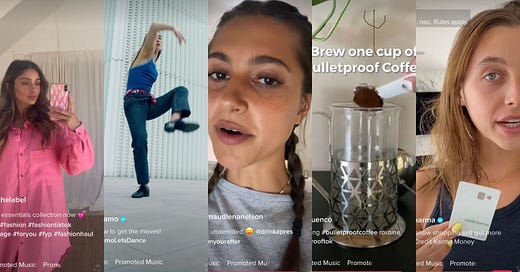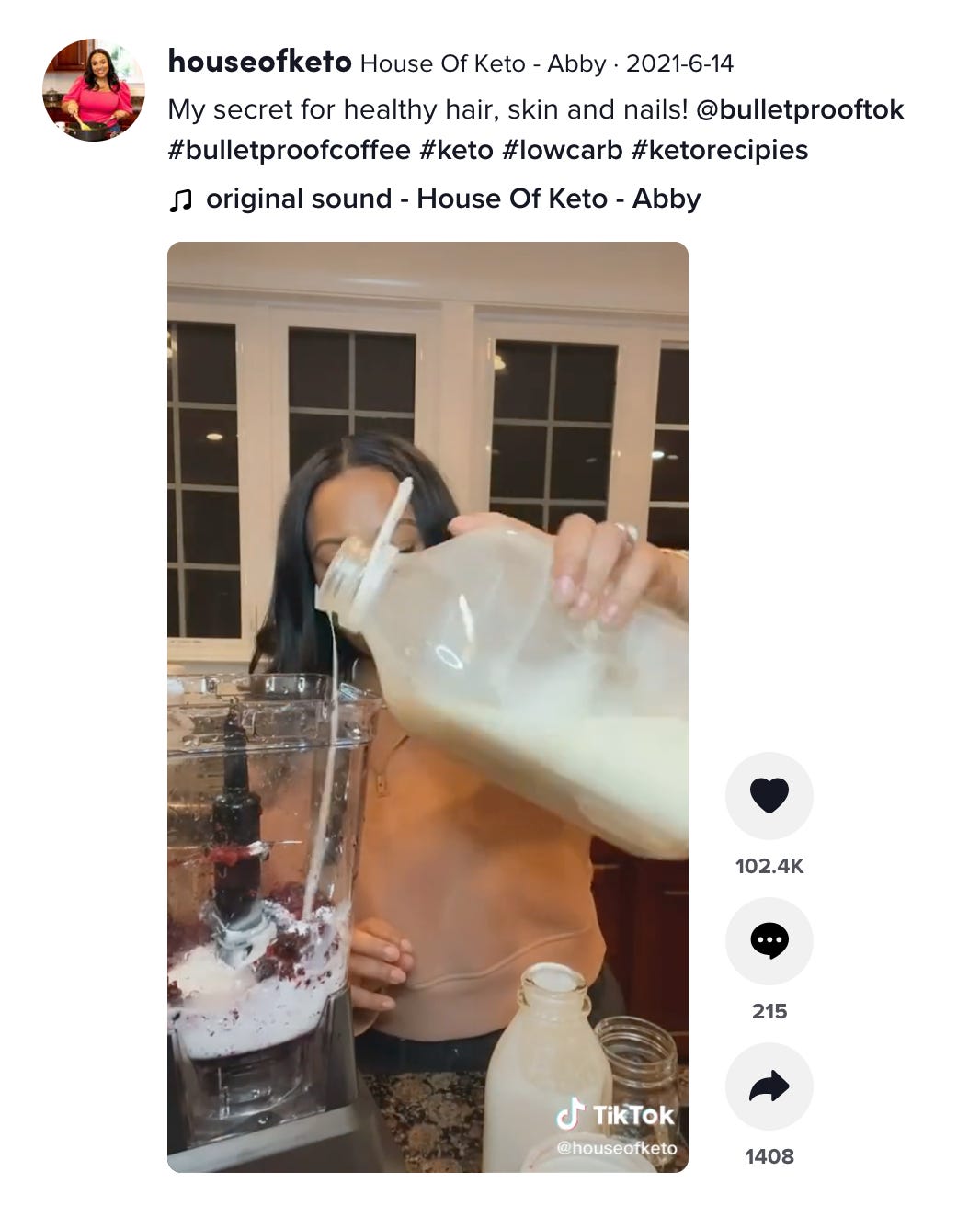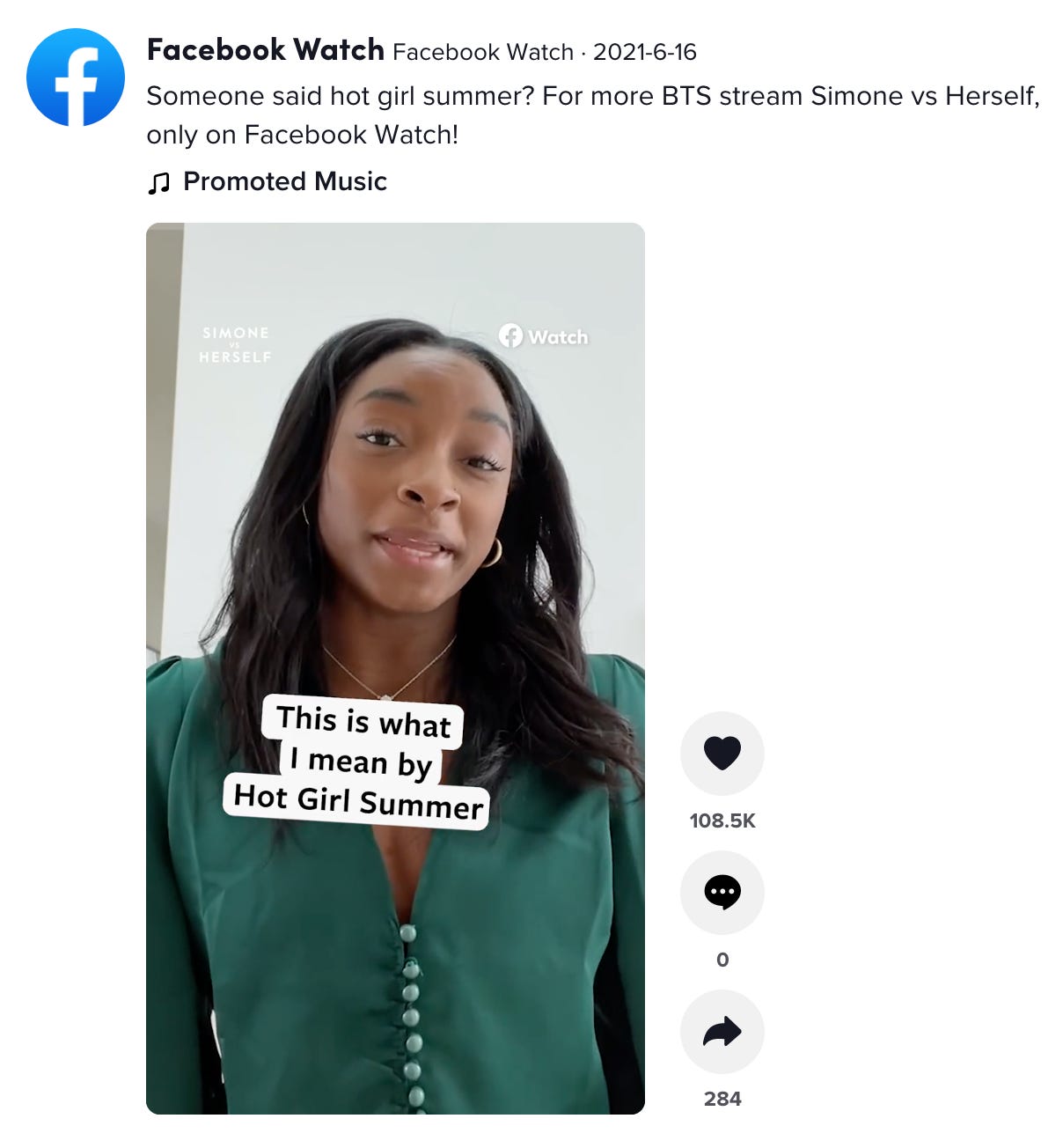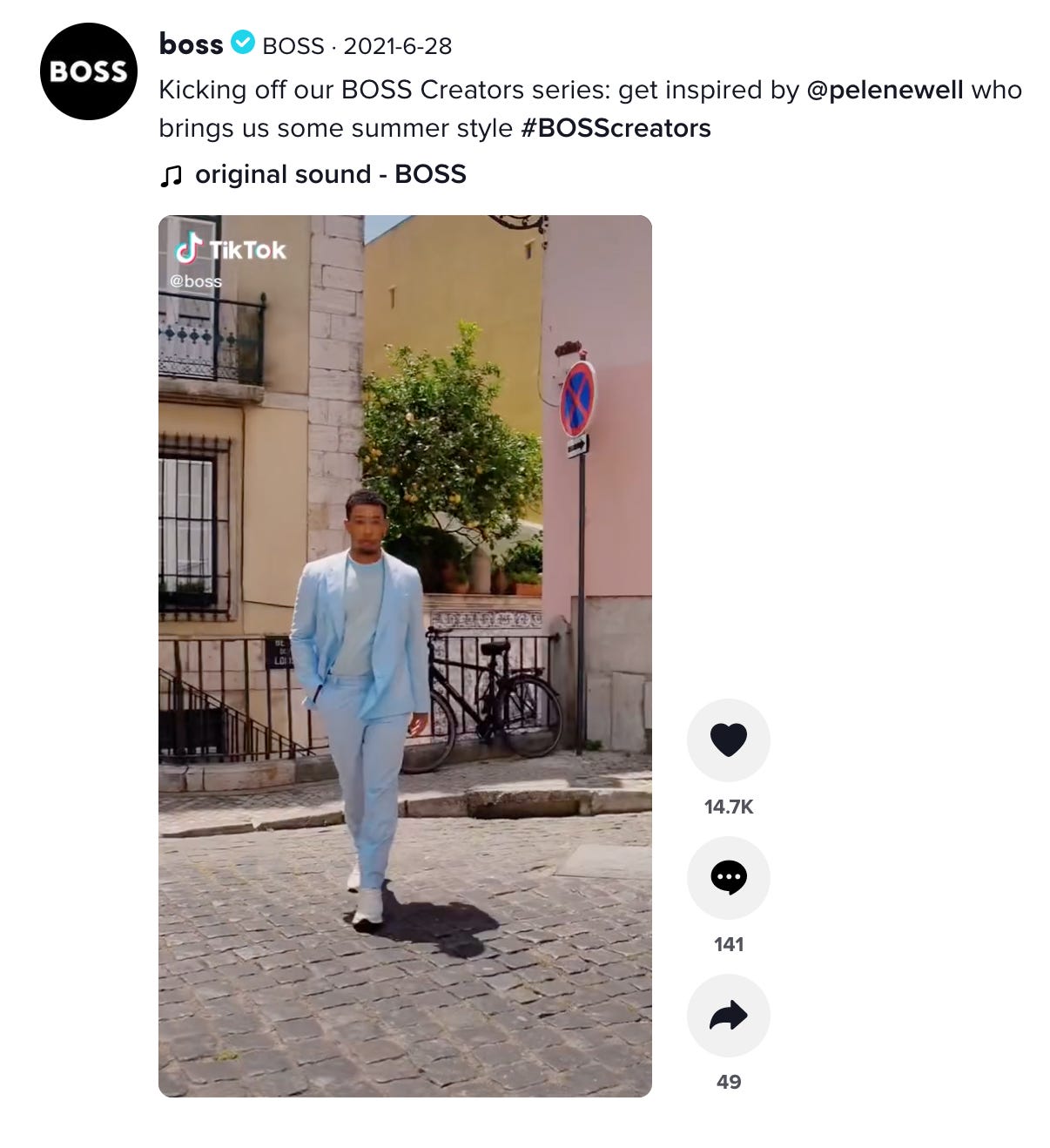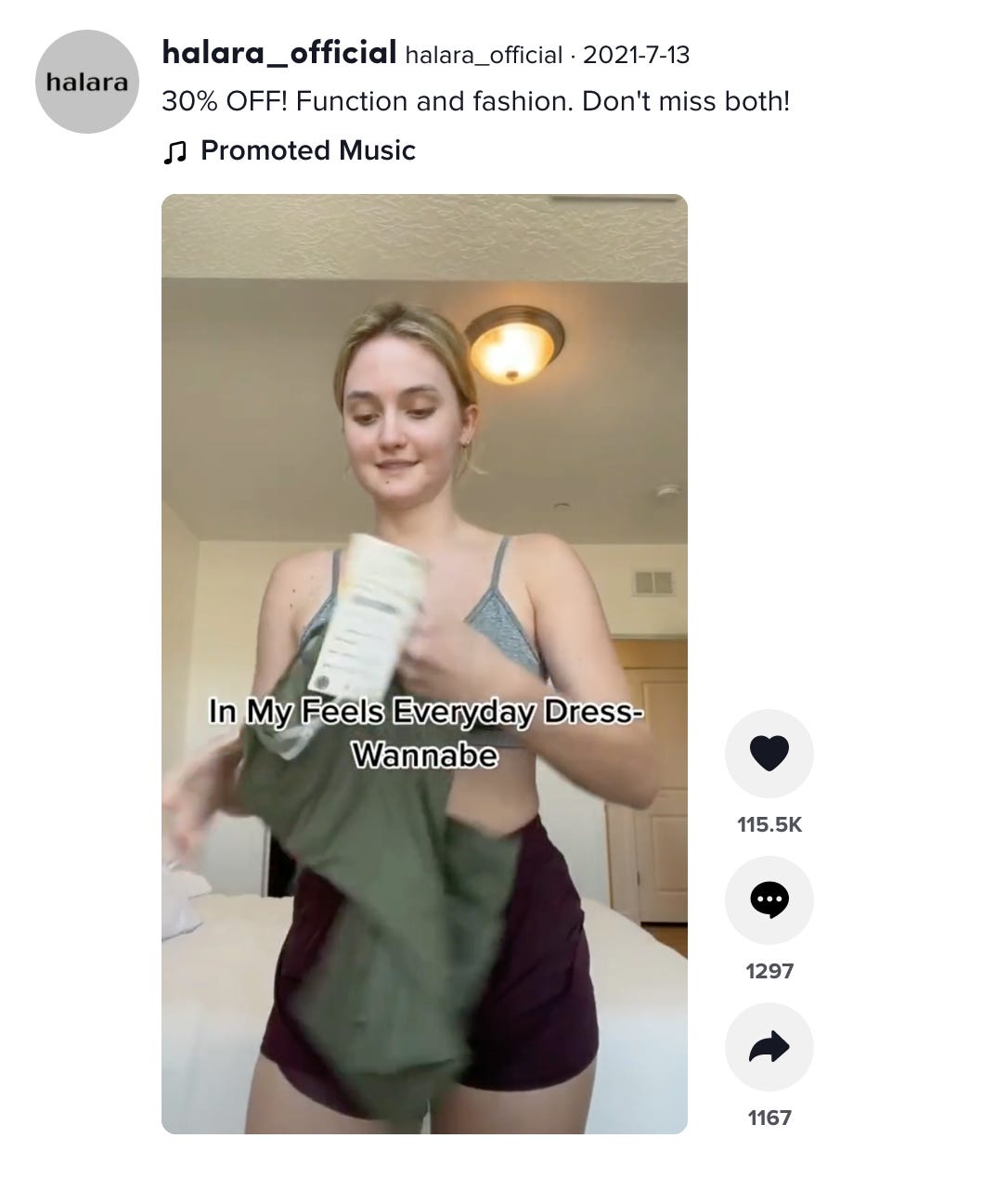TikTok Won't Stop Pushing Their Influencer Sponcon on Me
TikTok has taken advertising to a new level of aggressive weirdness. Who knew that was even possible?
As I have written before, I do not like being advertised to. I mean, I don't actually know anyone who does, and sure, there is a case to be made for more inclusive marketing, but I specifically do not enjoy advertising that is trying to act as if it is not advertising. What has gotten particularly insufferable, though, is advertising through social media — the kind of advertising that you encounter as a user on a "free" content creation app, that purports itself as being organic, cool, and hip, and specifically Not Your Father's brand of advertising.
It happened to YouTube relatively early, with ads playing before and during videos. And then you have your sponsored tweets and advertisements on posts and stories on Facebook and Instagram. So it was bound to happen on TikTok at some point, but I could not anticipate how TikTok would perfect the social media in-app advertisement game, in ways that are somehow more weird and aggressive than what I've already gotten through Instagram, Snapchat, and Twitter.
I began noticing my TikTok ads change about a month ago. The app used to display one sponsored ad on my "For You" page (think of it as your Facebook or Twitter feed) when I first opened it, and maybe another sponsored ad after dozens more videos. Now for the past few weeks, TikTok has showed me sponsored videos way more frequently, one about every three to 10 regular tiktoks (I know this because I started counting the number of videos between ads).
The ads have also gotten weirder in their use of influencers, but not influencers I recognize or am interested in following. And instead of curating ads corresponding with the people I follow — socialists, fat acceptance activists, cross stitchers — like Instagram does, I'm seeing ads for shit I absolutely have no interest in purchasing — expensive straight-size clothing, hair crimping wands, at-home treadmills, powdered coffee with added protein.
I don't recognize most of these brands, which is less weird — I get weird ads in the form of promoted tweets all the time, for random products and services I'm just as often not familiar with. But it's more weird that I don't recognize these influencers, either. It's common practice for "influencers" — previously a group of people that was mostly comprised of Instagram-focused celebrities, but now including any random person who has accumulated a respectable following on their social media platform of choice, but in all other respects would be a normal and average person on the street — to be paid to promote products on their pages. And if you're following that person on Instagram, Twitter, Facebook, or TikTok, you'll be exposed to their posts promoting these products. That is normal, and that is how we currently know influencer sponcon to work. But TikTok has taken this influencer sponcon to the next level, by using these sponcon tiktoks, straight from the profiles of influencers, as in-app advertisements.
So this is what I've ended up coming across, for example: instead of getting an ad from Starbucks' TikTok account for a new drink between every five videos I scroll through on TikTok, I'm getting an ad from an influencer's TikTok account that I don't follow, who I have no familiarity with, telling me about how much they love this new Starbucks drink. And it's clearly marked as a sponsored TikTok floating through my For You page for the express purpose of advertising this new Starbucks drink to me, but it's a video created by an influencer, paid for by Starbucks, instead of an ad created and shared by Starbucks itself.
Here are some of the ads I've gotten while scrolling through my "For You" page on TikTok over the past week alone, some of them from official brand accounts, but most of them coming from random influencers I don't know or follow, about products I have no interest in using:
I have no clue how it works, but I assume that the company that paid for the influencer to create the sponcon has also paid TikTok to promote the resulting sponcon as a sponsored post on the For You pages of a certain audience. Which, fine, they've figured out how to show off influencers who look like "everyday regular" people using their product. But that's part of what irks me — and what regular advertising seems to avoid by being transparently advertising. They've cut out their own advertising to the masses and replaced it with advertising directly from influencers, people who have presumably gained the trust of their following. It's almost like the natural evolution of advertising on social media: why should companies create their own content to sell themselves to young people, when they already have other young people making the content for them that they can use to promote themselves?
I'm not sure these ads would feel less aggressive if these videos were coming from the companies themselves. The videos above for Facebook Watch and Boss were transparently ads, but for example, the Clinique ad looked like an affirmation-focused skincare tutorial. I guess it could be worse: a few weeks ago, I got an ad of someone doing a pretty common TikTok trend involving Amazon, where people list a number of things that their followers should buy from Amazon, typically products that make life easier. However, the ad came from Amazon itself (I've tried to find the ad again and it's not posted to Amazon's TikTok account). It felt weird, watching Amazon use a random influencer to talk about how great shopping at Amazon is, and again, it was transparently an ad, but seemed like a strategy to gain the trust of a skeptical but malleable audience.
Here are a few other ads I got during this past week, from the TikTok accounts of companies and brands themselves:
Even when these companies are being more transparent about where these ads are coming from, so many of these still have a DIY aesthetic of being produced by an influencer in their spare time. Maybe influencers have created these ads, and they're just being posted by the company. But to me it just shows that companies know it's "trendy" for them to emulate youth culture, even if it comes off as disingenuous.


